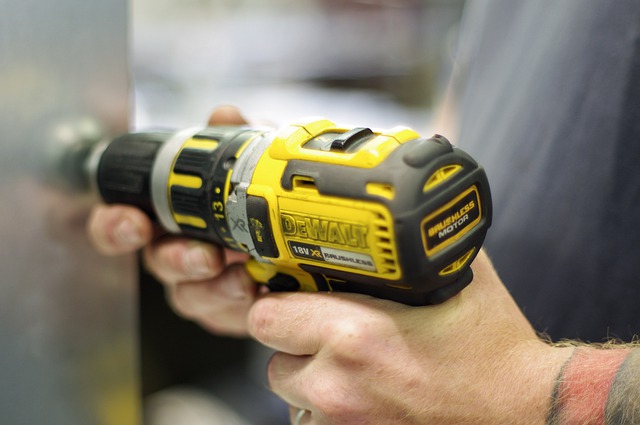Given the many sizes, types, and capabilities accessible, it’s tough to know which power tool to purchase for your project or workload. There are a few distinct applications and advantages to utilizing power tools, but with so many alternatives on the market, picking the best one might be difficult.
If you’re not sure whether to invest in a corded or cordless power tool, we’ve compiled all of the information you’ll need to make an informed decision. We’ve compiled all of the information you’ll need about cordless vs. corded power tools, from beginner to expert, whether you’re just getting started with DIY projects or wish to grow your collection.
Cordless Power Tools
In recent years, cordless power tools have seen a tremendous rise in popularity among both novice and expert tradesmen. When you take into consideration all of the benefits of working with this sort of power tool, many people prefer cordless to corded.
One of the most significant advantages of cordless power tools is their increased mobility. Because they are battery operated rather than cable, not only can they be utilized both indoors and outdoors, but they may also be used in areas where there would otherwise be limitations due to location restrictions. When you’re working, you’ll be able to work without worrying about running out of battery life or tripping over wires and cables. In design, cordless power tools are very flexible and portable, making them versatile and useful to take with you on every trip.
Because there is no connection, cordless power tools are simply simpler to store and are frequently lighter as well. To protect its wires from damage, a corded power tool must be stored in a specific manner, but a cordless tool can simply be placed in its box or on a shelf without regard for how it is stored.
Corded Power Tools
There are a number of distinct types of corded power equipment accessible to complete a wide range of tasks. Corded power tools’ popularity among tool enthusiasts is due to their benefits, as they’ve been on the market for longer.
Another benefit of utilizing corded power tools is their consistent supply of electricity. You can use the tool as long as necessary without having to worry about the electricity going out or stopping because a constant connection to electricity allows you to do so. In terms of performance, corded power tools generally outperform cordless versions because of this power supply. Because of their bigger force and torque, they’re ideal for major projects and large jobs. A corded power tool, for example, would be fantastic for indoor DIY work like drilling since it can provide significant force and torque.
In general, corded power tools are usually less expensive to buy, so you may save money while still receiving a lot of power. The cost of cordless equipment must include both batteries and chargers, but the price of corded instruments is predetermined and frequently lower in recognition of this. If you’re searching for a low-cost option, corded power tools are typically a smart investment. If you’re on the lookout for a deal, corded power tools could be the ideal choice for you.
Both corded and cordless power tools have particular advantages and benefits, depending on how you intend to use them and what project you’re working on. Storage and mobility must all be considered in order to ensure that you get the appropriate tool for the job. There are numerous power tools to choose from, and we’d recommend you buy power tools online so you’ll most likely find the right one for your DIY projects and building.
Cordless vs. corded power tools – What do you prefer?
Also Read: Handy Things To Add To Your Tool Collection


